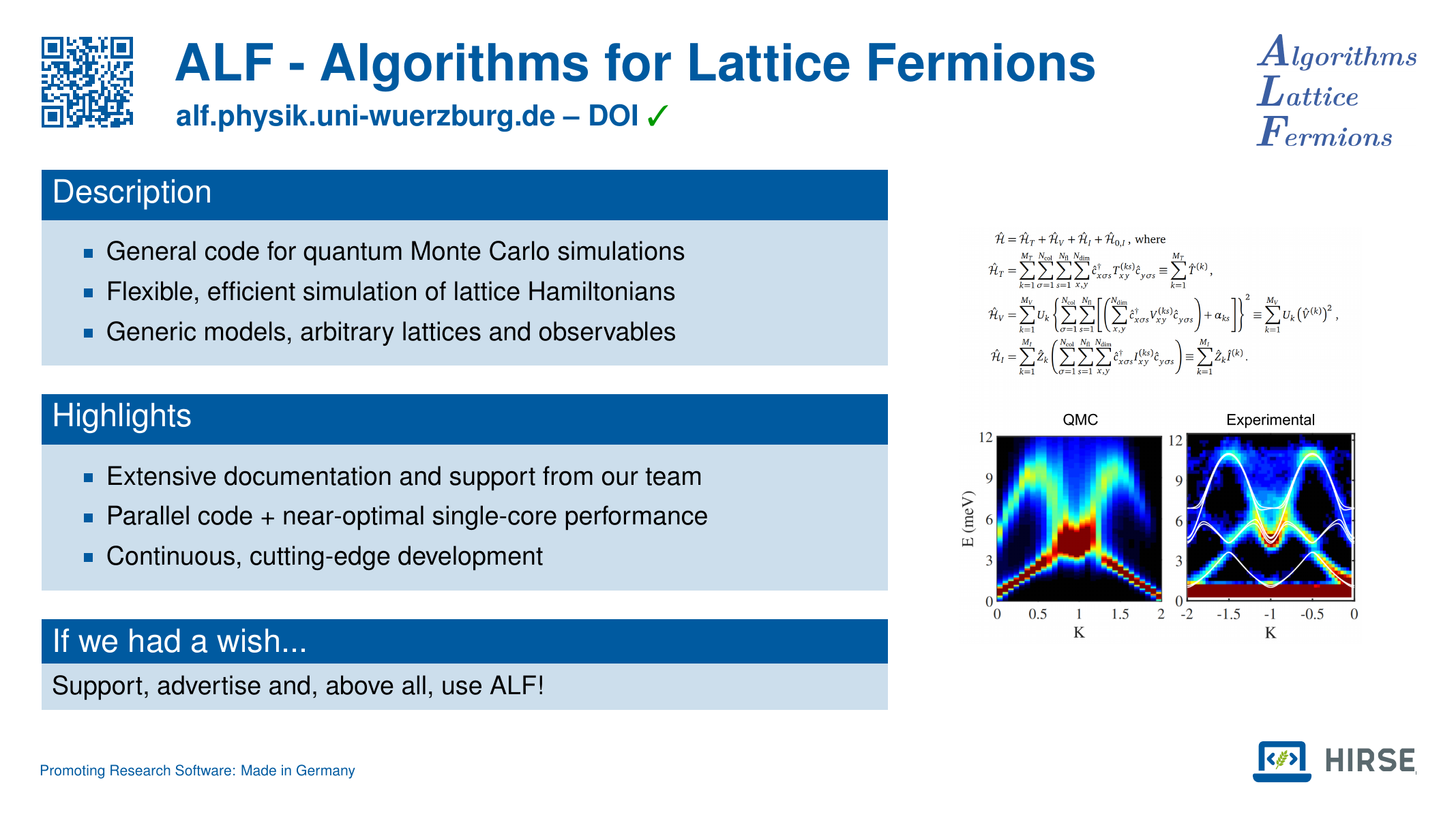We’re pleased to confirm the forth edition of our biennial ALF User Workshop!
Save the date:
- October 5th to October 9th
Where:
- Hybrid: we plan ALF Workshop 2026 as a hybrid event, taking place in Würzburg – Germany and online.
Its program will include hands-on tutorials and workshop projects, as well as deep-dive talks by participants and invited speakers — there will be something for beginners and experienced researchers alike.
[Read More]

